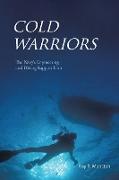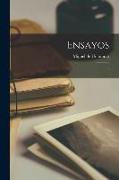Cold Warriors
BücherAngebote / Angebote:
This is the story of a technological war. There was no ambiguity behind the phrase "mutually assured destruction"¿nuclear weapons and the means to deliver them had become a reality. The atomic bomb brought Japan to the USS Missouri for the formal surrender on September 2, 1945, a date that marked the end of World War Two. But this date also signaled the beginning of the Cold War as the Soviet Union emerged from the shadows. There was no "shot heard 'round the world", no Fort Sumter, no Pearl Harbor, only the threat of a mushroom cloud far worse than what Japan experienced. The Cold War remained cold because all the players aggressively pursued a strategy of deterrence aimed at keeping the opponent's finger off the trigger. The people on the front lines and behind the scenes¿the Cold Warriors on both sides¿would come from the civilians who created the technology and the military that would be entrusted with its use. When tensions escalated, it was the Navy and the "silent service" that played a critical role. In Cold Warriors, the author describes a Navy laboratory in New London, Connecticut, populated with pioneers in submarine and antisubmarine warfare technology. Their mandate was to take the intellectual risks that would keep this country one step ahead of the Soviet Union. But ideas alone would not win the Cold War. The scientists relied on teams of field engineers whose willingness to take on physical risk would convert theory into reality. One of these groups was simply known as "the divers." Beginning in the 1950s, the U.S. Navy Underwater Sound Laboratory began sending a small number of its civilian staff¿one or two each year¿to train at one of the Navy's diving schools. As the Laboratory in New London evolved into the Naval Undersea Warfare Center, Newport, Rhode Island, that small team became the Engineering and Diving Support Unit. For more than a half-century, "the divers" would travel the world¿this book is their story.
Folgt in ca. 10 Arbeitstagen




